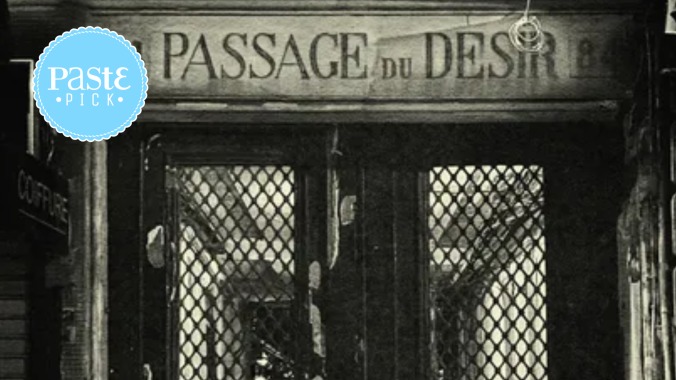Passage du Desir Is an Introduction to Johnny Blue Skies and a Rebirth For Sturgill Simpson
The Kentucky-born, Nashville-bred, and Paris-based country messenger’s first LP under his new name isn't a comeback—it’s a recalibration firing on all cylinders. The album’s only imperfection is that it ends.

The last time we heard from Sturgill Simpson, he was playing a religious militia man named Marshall in HBO’s The Righteous Gemstones in 2023. He even sang a little bit, delivering a sermon of “All the Gold in California” to his commandos in Christ with a group of backing voices named The Choir of Fire behind him. Before that, Simpson released The Ballad of Dood & Juanita in 2021, a fine translation of bluegrass, mountain music and gospel a cappella recorded in a week with his backing band, the Hillbilly Avengers. In an interview with Relix three years ago, Simpson said The Ballad of Dood & Juanita would be his last record—something about a “five-album narrative” his wife helped him settle on when they moved to Nashville. But certainly a songwriter like Simpson couldn’t possibly call it quits at the age of 46? Correct. The Kentucky-born country music shepherd has reinvented himself under a new name: Johnny Blue Skies.
Passage du Desir (which translates to “Passage of Desire”), Simpson’s first album as Johnny Blue Skies, is both an introduction and a rebirth. This is the Sturgill Simpson of old. And, at the same time, it’s not. Simpson wrote his new album in Paris and recorded it at Clement House Recording Studio in Nashville and, more famously, Abbey Road in London. Though he makes music that keeps up with the outlaw forefathers who came before him, Simpson has never adhered to any sort of country tradition. This is the same guy who busked for ACLU donations outside the CMAs, made an accompanying anime film for his album Sound & Fury and couldn’t name a trend if it bit him in the ass. And that’s why he’s become so beloved (and one of the greatest pupils of the Neil Young School of Not Giving a Damn) since his 2014 breakthrough Metamodern Sounds in Country Music hit the shelves. He’s the ultimate contrarian, which explains why, 10 years after subverting the mainstream and eight years after being nominated for an Album of the Year Grammy alongside Drake, Adele and Beyoncé, he’s moved to Paris, changed his stage name and put together the finest record of his career with David Ferguson, who’s worked with Johnny Cash and John Prine. And, all of this comes barely three years after Simpson ruptured his vocal chords while touring with Willie Nelson.
-

-

-

-

-

-

-

-

-

-

-

-

-

-

-

-

-

-

-

-

-

-

-

-

-

-

-

-

-

-

-

-

-

-

-

-

-

-

-

-








































